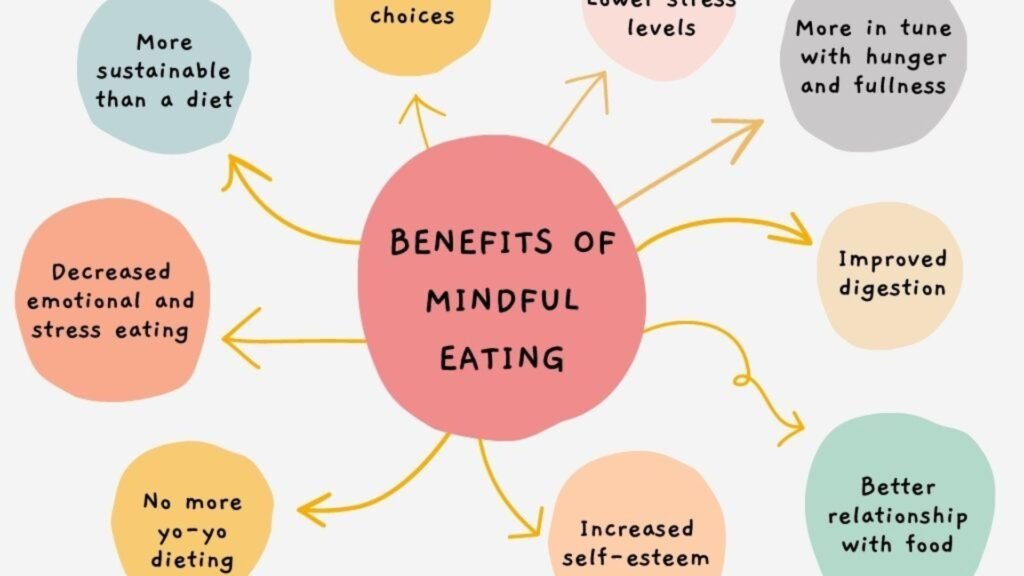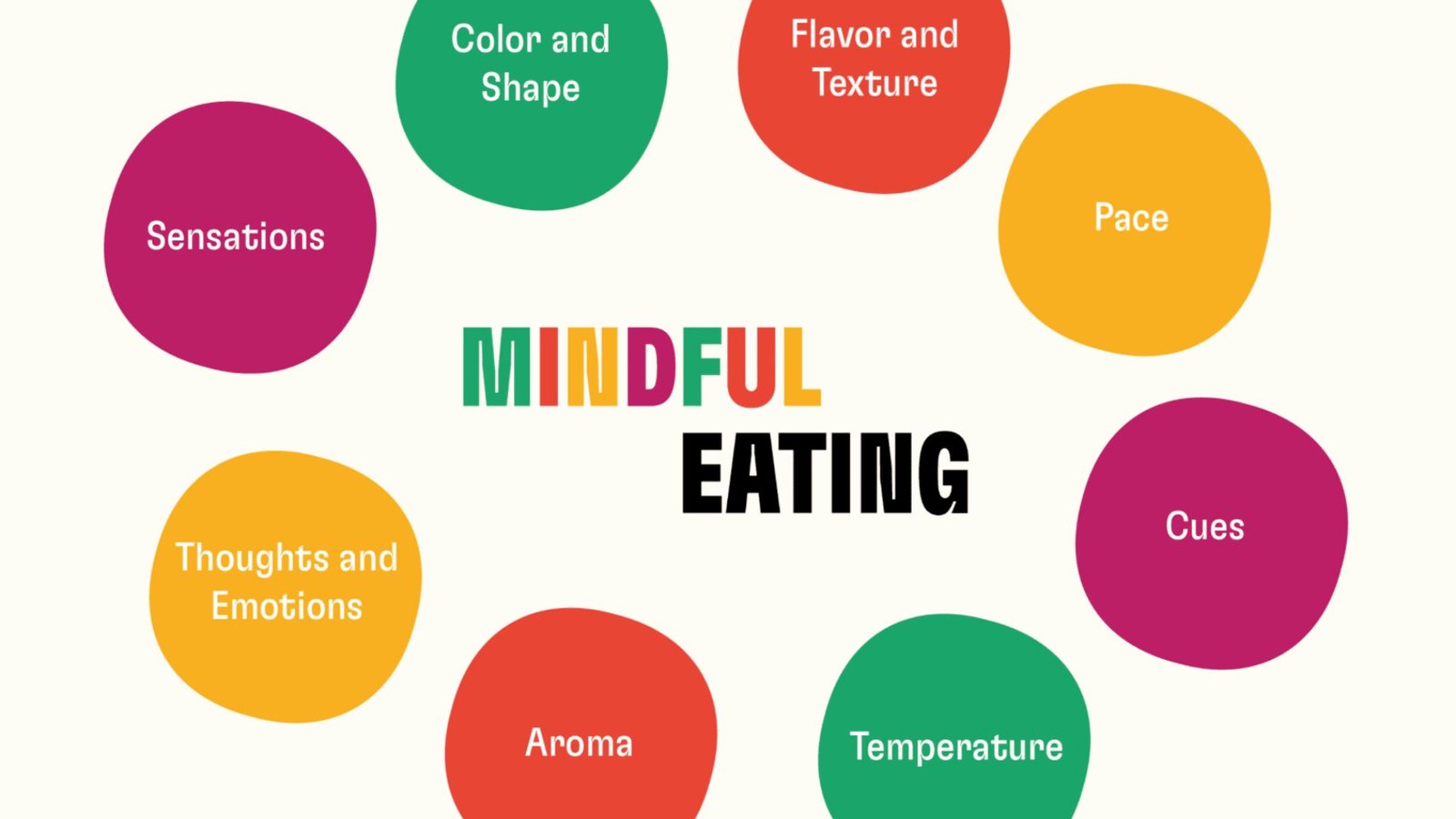Mindful eating is a practice that focuses on being present and fully engaged with your eating experience. It involves paying attention to the taste, texture, and aroma of your food while recognizing hunger and fullness cues. This approach can significantly benefit weight loss by promoting healthier eating habits and improving your overall relationship with food. Here’s how mindful eating can help you achieve your weight loss goals.

What is Mindful Eating?
To begin with, mindful eating is about focusing on the present moment while eating. This means avoiding distractions like TV or smartphones and paying close attention to your food. By savoring each bite and recognizing your body’s signals, you can make more conscious choices and prevent overeating.
1. Reduces Overeating
Firstly, one of the key benefits of mindful eating is that it helps reduce overeating. When you eat mindfully, you listen to your body’s hunger and fullness signals more effectively. This can prevent you from eating more than you need. By eating slowly and paying attention to your body’s cues, you are more likely to stop eating when you feel satisfied rather than stuffed.
2. Improves Digestion
Additionally, mindful eating can enhance digestion. Eating slowly and chewing your food thoroughly allows your digestive system to process the food more efficiently. This practice reduces the likelihood of digestive discomfort and bloating, which can occur when you eat too quickly. Improved digestion also means your body absorbs nutrients better, supporting overall health and weight loss.
3. Enhances Food Enjoyment
Moreover, mindful eating increases your enjoyment of food. When you take the time to savor each bite, you are more likely to appreciate the flavors and textures of your meals. This heightened awareness can lead to greater satisfaction with smaller portions, as you fully enjoy the taste of your food. Enjoying your food more can make it easier to stick to healthy eating habits.
4. Promotes Healthier Food Choices
Another benefit of mindful eating is that it encourages healthier food choices. When you are more aware of what you’re eating, you can make better decisions about your food. Mindful eaters are often more inclined to choose nutritious options and avoid emotional or mindless eating. This shift can lead to a balanced diet that supports weight loss and overall health.
5. Reduces Emotional Eating
Additionally, mindful eating helps address emotional eating. By focusing on the present moment and understanding your true hunger signals, you can better differentiate between physical hunger and emotional cravings. This awareness can help you manage stress, boredom, or other emotions that might lead to overeating. Developing this skill helps you make more intentional choices about when and why you eat.
How to Practice Mindful Eating
To practice mindful eating effectively, consider the following tips:
- Eat Slowly: Take your time to chew your food thoroughly and savor each bite. Aim to eat without rushing, allowing yourself to enjoy the meal.
- Eliminate Distractions: Avoid eating while watching TV or using your phone. Focus on your food and the experience of eating.
- Listen to Your Body: Pay attention to your hunger and fullness cues. Eat when you are hungry and stop when you are satisfied.
- Use All Your Senses: Engage all your senses while eating. Notice the color, smell, texture, and taste of your food.
- Reflect on Your Meal: Take a moment to appreciate your food and reflect on how it makes you feel. This can enhance your overall eating experience.
Conclusion
In conclusion, mindful eating offers numerous benefits for weight loss and overall health. By reducing overeating, improving digestion, and enhancing your enjoyment of food, mindful eating can help you make healthier choices and support your weight loss goals. Additionally, it addresses emotional eating and promotes a more positive relationship with food. Incorporate mindful eating practices into your daily routine to experience these benefits and achieve lasting success in your weight loss journey.




